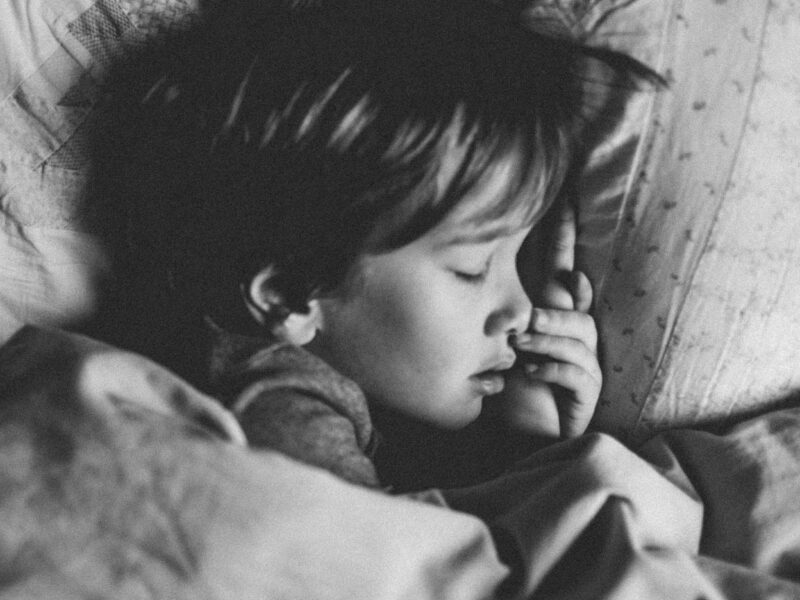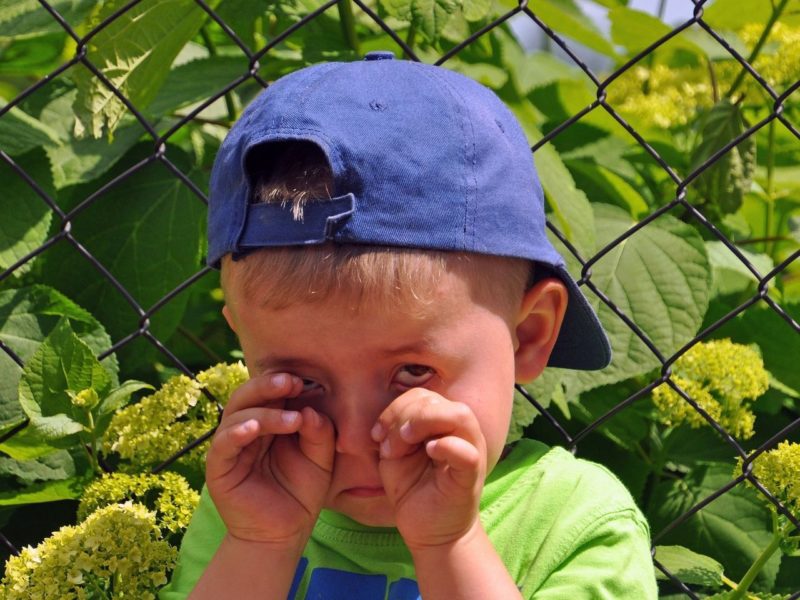
Waking in the middle of the night from a bad dream can be very frightening for children. Nightmares, although a perfectly normal part of childhood, are nonetheless scary for youngsters and if they become habitual, can be unsettling for their parents, as well.
What is Normal?
Studies show that as many as 40% of children between the ages of 5-12 experience occasional nightmares, and night terrors, more disturbing types of episodes, are seen in up to 4% of children in that age category.
Nightmares can begin as early as two years, but they typically peak in frequency a few years later.
In children who do experience nightmares, they sometimes happen on a weekly basis. So, restless sleep from scary dreams is quite natural in childhood.
Nightmares vs. Night Terrors
Both nightmares and night terrors can be frightening, but there are distinctive differences between the two.
Nightmares are simply scary dreams which typically occur during a light stage of sleep.
Children experiencing a nightmare will often call out for their parents or will get out of bed to go to them.
Usually, the child is able to recall the dream, which gives parents the opportunity to help calm the child’s fears.
Night terrors, on the other hand, are experienced during deep sleep and frequently, a child will not fully wake when in the midst of one, instead appearing frightened and disoriented, but is probably still asleep.
Upon awakening, a child usually cannot recall experiencing a night terror.
What do They Mean?
Sometimes, getting to the bottom of your child’s nightmares is fairly simple. If there has been some recent turmoil in their life, such as a move, a death in the family, or a divorce, it is not uncommon for a child to work through some of their fears and emotions during sleep.
Typically, a child will have a dramatic decrease in nightmares within about six months after such an event. Scary movies can bring on nightmares for some children – if your child is sensitive in nature, you may want to limit exposure to scary television shows, movies, or books.
Many parents worry that the nightmares that their child experiences are symptomatic of an emotional problem or evidence that the child has been traumatized in some way during their waking hours.
Although traumatic events can certainly trigger nightmares, more often than not nightmares are not a cause for concern. If you are concerned about your child’s nightmares, take a bit of time to talk about the scary dreams with your child during their waking hours and ask about any worries that they may be having.
Assure them that everyone, even adults, sometimes feel frightened and that it is perfectly normal to have worries.
Helping Your Child Cope
There are some things that you can do to help when your child has a nightmare:
- Go to them when you hear them having a nightmare.
- Speak in a soft, calming voice.
- Explain to your child that they were having a bad dream and encourage them to talk about it.
- Snuggle with them for a few minutes until they feel safe and secure.
- Offer to leave the bedroom door open and provide a soft light.
What Not to do:
- Do not allow your child to get in the habit of sleeping the remainder of the night in your bed. This can send the message that their room is not safe.
- Do not minimise your child’s feelings. Nightmares can feel very real to a child, so take the time to assure them that they are safe.
- Never express anger at your child for being disruptive or “babyish.”
When To Seek Help
If your child’s nightmares become frequent enough to disturb their sleep patterns to a degree that interferes with their daily lives, it may be time to check with your child’s paediatrician.
Most children outgrow nightmares on their own, but if you have concerns, it can’t hurt to talk to your child’s doctor for a bit of advice.

